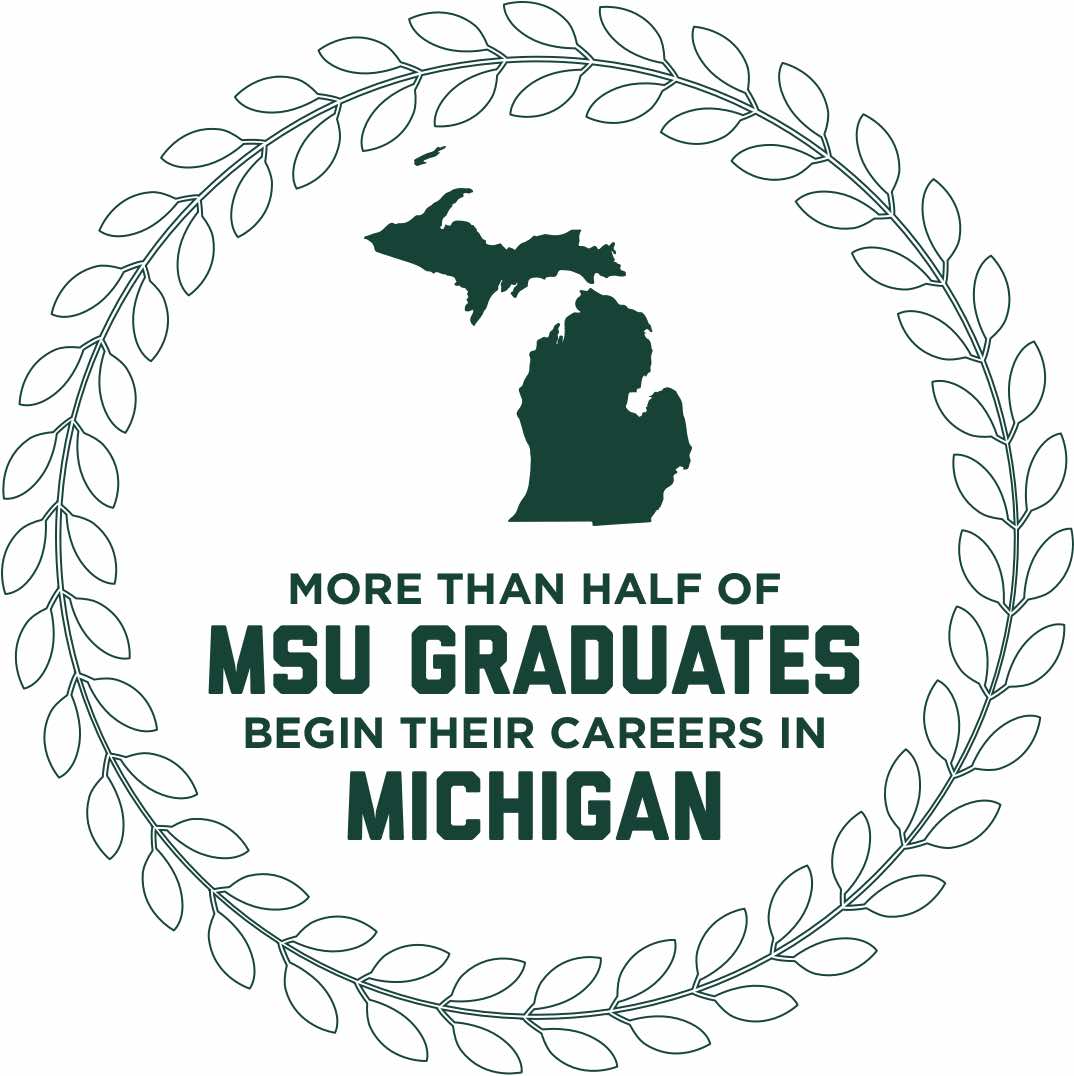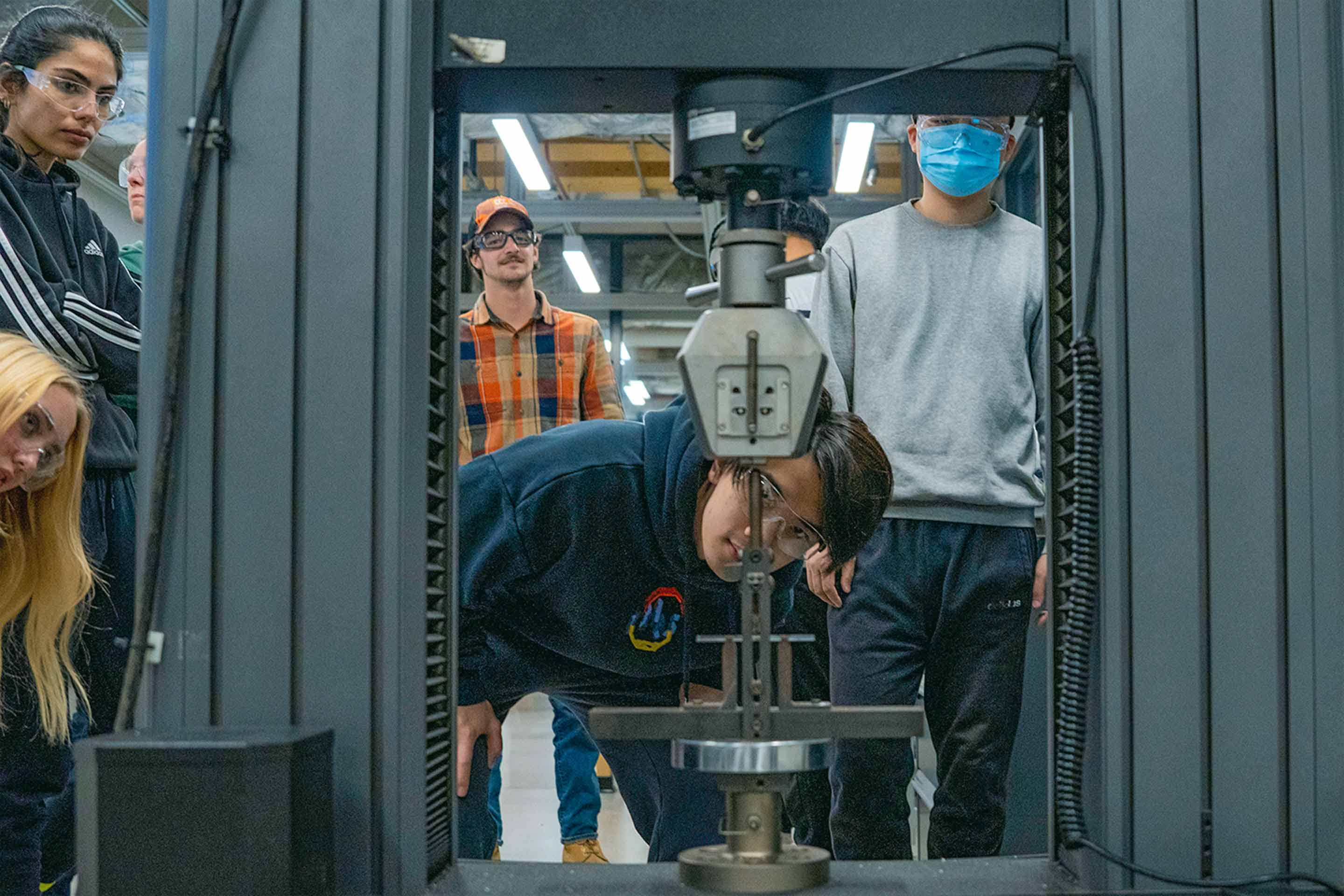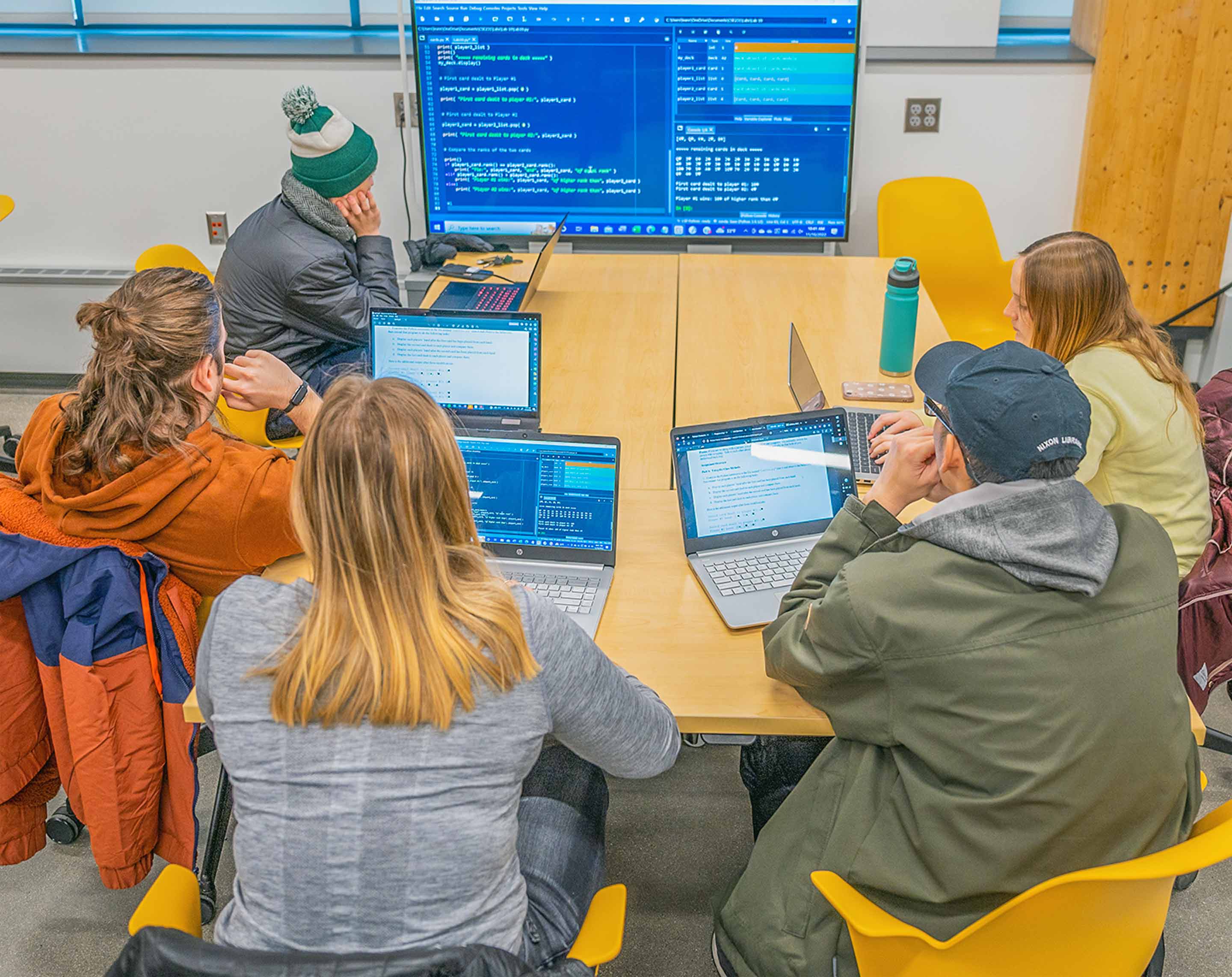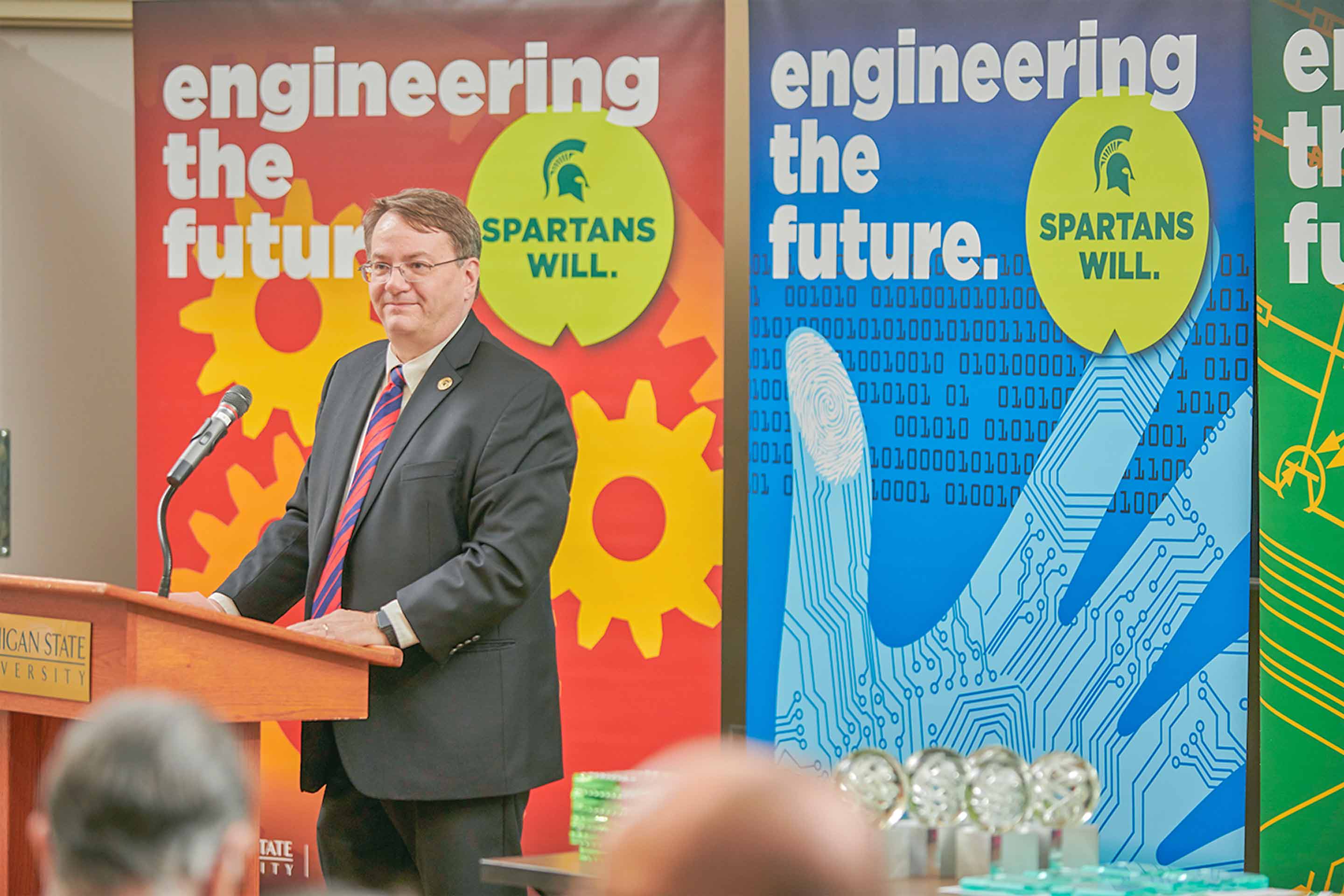Michigan made its name in the 20th century as a manufacturing powerhouse, and that legacy remains strong today. The state is a national leader for employment in industries related to automation and what’s known as Industry 4.0, or the integration of new technologies in manufacturing operations and production. But to stay competitive in a rapidly changing landscape nationally and globally, Michigan must have more highly skilled workers and modes of innovation that support industries important to its future success.
Michigan State University is a vital player in these efforts. The university is growing and evolving high-profile facilities and partnerships to keep pace with industry needs, from the Facility for Rare Isotope Beams — the preeminent user facility of its kind in the world, which recently announced its involvement in a new space electronics testing center — to MSU and Apple’s first U.S. Developer Academy in Detroit to MSU’s many industry collaborations that are reinventing the future of mobility in Michigan and beyond.
The education MSU provides prepares students to contribute immediately to high-tech manufacturing, engineering and digital innovation needs across industries.
“We are educating students to face the challenges of tomorrow,” says Abdol Esfahanian, chair of the Department of Computer Science and Engineering in MSU’s College of Engineering. “The world is increasingly software enabled and data driven, and computer science is the engine of most innovations.”
And these needs keep growing. The technology sector of Michigan’s economy — and of the United States overall — is experiencing significant shortages of workers. The job outlook for engineers continues to show a high demand for talent. And the demand for talent in technology- and data-related areas is only expected to increase. The U.S. Bureau of Labor Statics projects overall employment in computer and information technology occupations will grow 15% from 2021 to 2031, much faster than the average for all occupations.
Health science, social science, business, agriculture and environmental science all now require digital technologies, automation, artificial intelligence and machine learning as standard tools, and what MSU students learn is keeping pace to help Michigan thrive.
“MSU students are rooted in Michigan, so we have the ability to contribute to building up high-tech companies in the state,” says Eric Torng, associate chair for research and faculty development in the Department of Computer Science and Engineering in the College of Engineering. “Our graduates are highly marketable and could go anywhere. They stay because they want to be drivers of innovation and progress in Michigan.”





